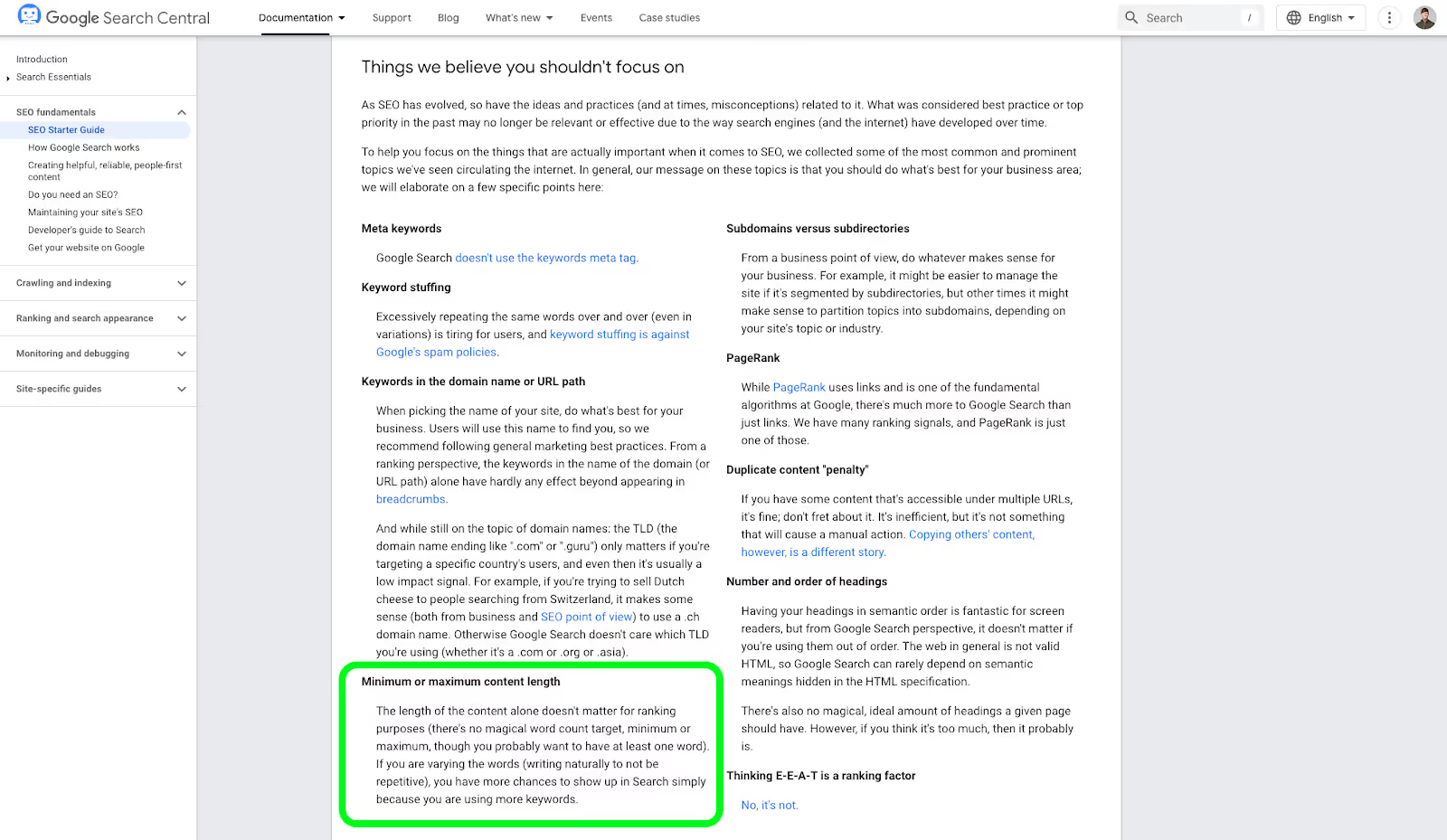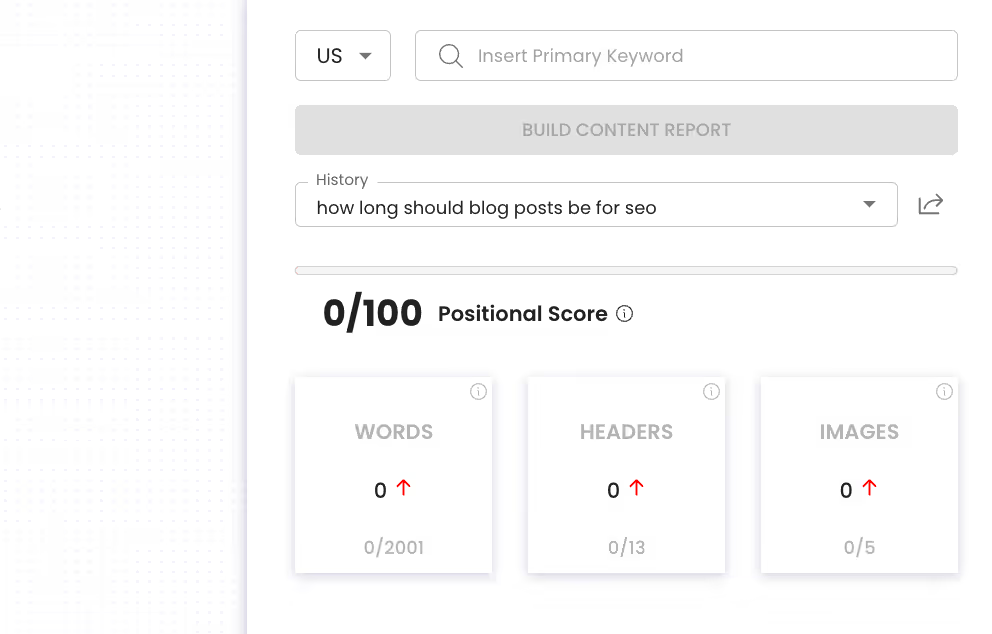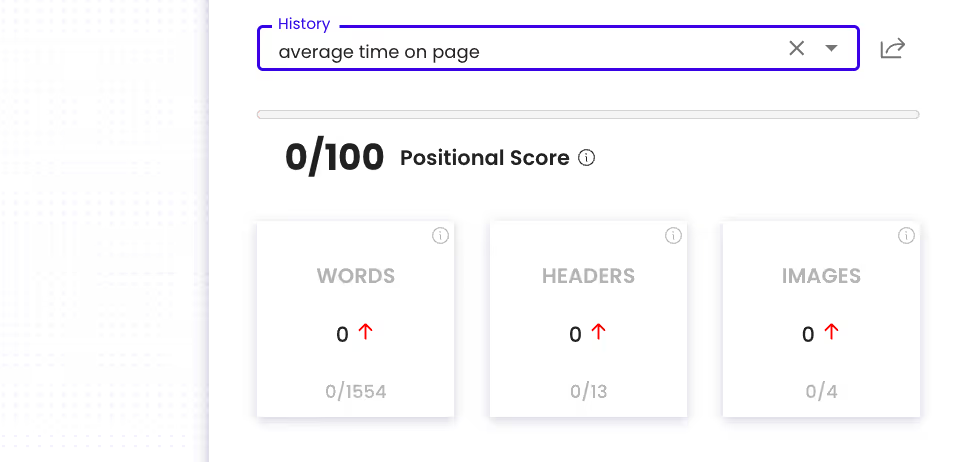It depends.
However, according to our analysis, the top-performing blog posts are typically at least 1,300 words, on average.
When I say that it depends, I mean that the ideal word count for a blog post can vary dramatically depending on the keyword type and the topic we are writing about.
Most of my blog posts are typically about 1,800 to 2,000 words, but in some cases, I’ll often need to write more for very in-depth topics, hitting 3,000 to 4,000 words with some of our in-depth guides. On the other hand, if we create a blog post to serve a very long-tail keyword and can afford to be very specific, our posts might only be 1,200 to 1,400 words.
Regarding search engine optimization (SEO), Google has said not to worry about word count, at least according to Google Search Advocate, John Mueller, and Google’s official documentation.
I know, I know. It is a little hard to listen to any of Google’s recommendations. But I think their point is that blog posts of various shapes and sizes can rank in search results. There is often a lot more to a blog post than just the words on the page, for example, the helpfulness of those words, graphics, videos, and the website's user experience.
While I agree with Google that we shouldn’t try to hit a word count just for the sake of hitting a word count, I think that mapping the length of your content to the current length of the top-performing search results is typically a good starting point.
In SEO, you very rarely want to go against the grain, and whenever I’m outlining a new piece of content, I will analyze the content length of the top-performing search results to get a sense of how long my piece of content should be.
In this article, I’ll explain Google’s statements, provide some data, and explain my process for determining the length of our blog posts, either manually or automatically.
What Google’s Said About Blog Post Length
While Google isn’t the only search engine we could consider optimizing for, it has the biggest market share and is where I’d focus my attention.
Google has made several comments about word count and the amount of text on a given web page in the context of search engine performance and content helpfulness.
In 2021, during Google Search Central SEO Office Hours, John Mueller, Google’s Search Advocate, was asked directly if adding content to a web page would improve that web page’s performance in search results.
Mueller responded by saying “From our point of view the number of words on a page is not a quality factor, not a ranking factor.”
Mueller said that “just blindly adding more and more text to a page doesn’t make it better” and “in some cases, people will want a book with a lot of information. And in other cases, people want something short and sweet.”
These 2021 statements align with Google’s current documentation for website owners. In Google Search Central’s documentation, Google highlights nine things that website owners just shouldn’t focus on:

Google comically suggests that you’ll likely want your web page to have at least one word but that there isn’t a minimum or maximum number of words to use for optimal search engine performance.
In Google’s guide to creating helpful, reliable, people-first content, they suggest that we should avoid creating content primarily for search engines and once again reiterate that you shouldn’t be writing for a particular word count:

Instead, Google provides several suggestions and a methodology for determining the quality and helpfulness of your web pages, such as the unique insights they provide.
Mueller’s comments about the length of the web page or blog post reflecting what the user is looking for make a lot of sense.
In SEO, we talk a lot about search intent or the reason someone is doing a Google search, and we do want to align our pages to the search intent. If the search query can be quickly answered with a short blog post, great; that works, but if the search query is broad or related to a very dense topic, then a short blog post likely wouldn’t sufficiently meet the searcher's search intent.
While there isn’t a minimum or maximum number of words to use in a blog post, there is likely an optimal number of words or a suggested number of words we would need to align with the search intent for a given search query.
What The Data Says
As part of our research, we’ve crawled the top search results for thousands of search queries. We found that, on average, the top-performing and highest-ranking web pages typically contain at least 1,300 words.
We conducted this analysis by looking at the results of our Optimize toolset, our content optimization tool. Optimize provides many suggestions, including suggested word count, and determines these recommendations by analyzing the characteristics of today’s top-performing web pages for a given keyword.
A separate analysis from Semrush, for example, found that longer pieces of content positively correlated with search engine performance. They found that blog posts with over 3,000 words typically generated 138% more page views than blog posts with less than 500 words and that longer-form content was more likely to accumulate backlinks. Backlinks are simply links from other web pages to your web page and provide a Google signal as to whether your web page is a good one.
How I Think About Word Count
If you’ve read our blog in the past, you probably already know how important I think content outlines are in the content production process. I create a content outline for each piece of content written by me and the content written by our freelance writers.
Typically, the first step in my outlining process is determining the projected or suggested word count for a piece of content. This is important for a couple of reasons:
- We pay a lot of our freelance writers based on the lengths of the articles.
- I want to know generally how in-depth the top search results are going in their blog posts, and I essentially want to deliver Google a web page that is very similar in structure to what it is already preferring today.
While Google mentions that there isn’t a minimum or maximum number of words that should be used, there is likely an optimal number of words to meet the search intent for a given query.
And Google, more than anyone else, probably knows best which web pages meet the search intent for a given query. Logically, then, we can assume that the top-ranking search results today, for most search queries, probably align fairly well with the search intent desired. As such, we can assume that to meet the search intent for a given keyword, we would likely want to mirror or align to the characteristics of today’s top-performing search results for a given search query.
TLDR: I want to create a blog post roughly similar in length to what is currently performing well for the search query because Google likely already knows what searchers want.
You Can Do This Analysis Manually
To determine the optimal length of your blog post, here is what I would recommend:
1) Enter the primary keyword you want to rank for in Google’s search engine.
2) Open the top ten search results in a new tab. Then, remove any web pages that aren’t blog posts. Note: if you see that most search results for a given query aren’t blog posts, that would likely suggest that you shouldn’t use a blog post to serve the primary keyword in view.
3) Copy and paste the body text from the top-performing search results into a document editor.
4) Determine the average word count of the top-performing search results by dividing the total number of words in the editor by the number of web pages included.
And that would be your suggested word count or the word count that the search results today favor for a given keyword. If necessary, you could remove extreme outliers, but I suspect the top-ranking search results will be fairly similar in length for many keywords.
Furthermore, if you’d like a larger sample size, you could certainly pull from the top two or three pages of search results.
You Can Do This Analysis With a Tool
The process outlined above is fairly straightforward but time-consuming. Fortunately, there are several content optimization tools that can automatically perform this analysis.
For example, Positional’s Optimize toolset provides suggested word counts alongside other metrics and keyword suggestions:

Optimize determines its suggestions, including the suggested word count, by analyzing the top three pages of search results and removing some outliers. Before drafting the content you are reading right now, I ran a report on the above primary keyword and found that the suggested word count for this keyword is 2,001 words.
Several providers are on the market, and tools like SurferSEO, Clearscope, and Frase offer similar suggestions and functionality.
Examples
To provide just a couple more examples, for a keyword like “conversion rate optimization,” a very broad keyword for a very large topic space, I would expect the necessary length to be quite long. According to our Optimize toolset, for a blog post targeting this primary keyword, we’d want to deliver a +2,700-word guide:

However, for a more specific keyword like “average time on page,” you’d only need about 1,500 words to serve this keyword properly:

And that makes sense.
When doing this analysis manually or with a content optimization tool, don’t be surprised if the suggested word count varies pretty dramatically. Blog post lengths should vary depending on the topic/keyword and the type of blog post. For example, the ideal word count is likely a lot longer for a pillar page than for a blog post serving a very specific long-tail keyword within a cluster.
Make Each Word Count
My biggest complaint with a content optimization tool or trying to hit a suggested word count broadly is that just because you’ve hit a certain number of words doesn’t mean that your content is helpful or addresses the search intent.
This is where SEO is both an art and a science. It is a science in that we can use the top-ranking search results to give us general guidance on the right framework to use, but it is an art to create a piece of content worth reading that provides value to the internet.
Yes, I believe there should be a targeted word count, at least when you are outlining a piece of content. But my advice to our freelancer writers and when writing content myself is not to waste words and to go deeper if there is an opportunity.
Google is increasingly asking us to add unique insights to our web pages. Simply regurgitating what has already been published or using an AI-writing tool to generate blog content isn’t effective anymore.
When creating our content, I make each word count. I go to semi-extreme lengths to do so, requesting that our copy editors strip down my pieces and remove repetitiveness if necessary.
Final Thoughts
We hit our target word count with this piece of content. The article you just read was just over 2,000 words, but does that mean it was a good one?
I think so. In this piece, I worked to source expert quotes from Google’s team, referenced Google’s official documentation, and, at the same time, provided anecdotes from my own experience building content and SEO channels over this last decade.
In short, does word count matter when it comes to SEO? My approach has always been to deliver search engines a piece of content similar in structure to what they already prefer or what I could logically assume meets the search intent the searcher is looking for.
But just because you hit a word count, that doesn’t mean your article was necessarily good. Go to the depths required to add unique value to the internet, say something new, and give the searcher everything they’d need to know to satisfy the intent of their search.





